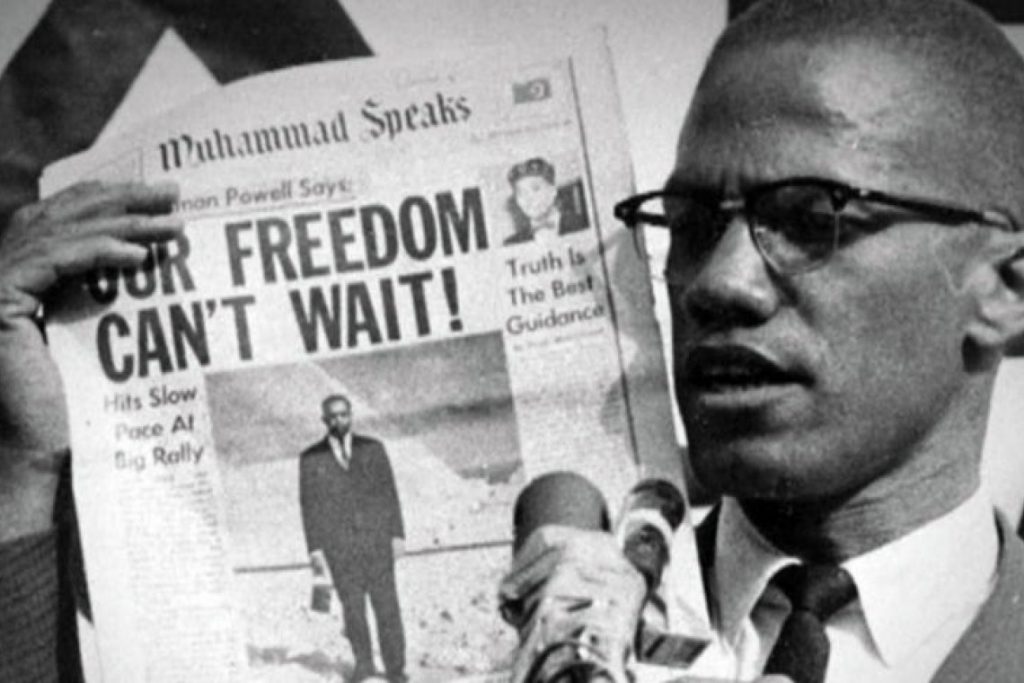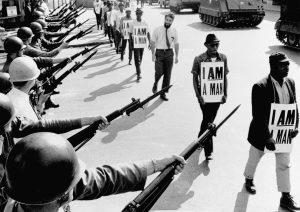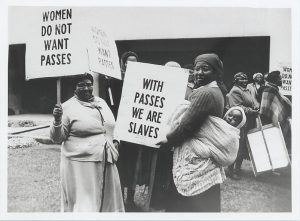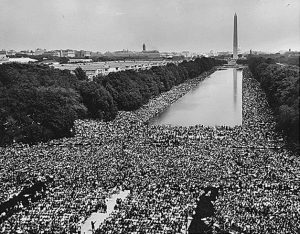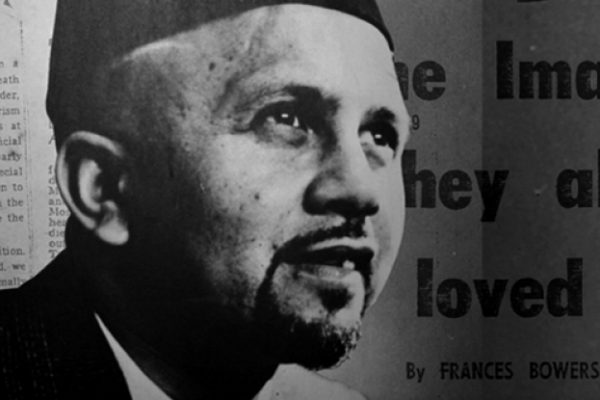Narrative is an incredibly powerful means of shaping human action and unconnected facts do not move our emotions, but when we hear a story our hearts respond and we can be moved to act.
Narrative is an incredibly powerful means of shaping human action and unconnected facts do not move our emotions, but when we hear a story our hearts respond and we can be moved to act.
The Black Civil Rights Movement and the Anti-Apartheid struggle offer key lessons for all those opposed to prejudice and discrimination. Their examples demonstrate the power of narrative to unite millions in a common cause, changing the world in ways that would have been unimaginable. Muslims are facing the rapid rise of Islamophobia and us – as Muslims – urgently need to learn from history and these successful movements.
 Under Apartheid and segregation, black people were denied their most basic human rights with discrimination enforced in every aspect of life. Looking back, it seems undeniably obvious that black people in America and South Africa were oppressed and that they had the right to demand equality, however, this was not always so self-evident. In both cases, the struggle for equal rights involved overturning the racist narrative not only in the eyes of the world but also in the minds of the oppressed.
Under Apartheid and segregation, black people were denied their most basic human rights with discrimination enforced in every aspect of life. Looking back, it seems undeniably obvious that black people in America and South Africa were oppressed and that they had the right to demand equality, however, this was not always so self-evident. In both cases, the struggle for equal rights involved overturning the racist narrative not only in the eyes of the world but also in the minds of the oppressed.
Free the mind from the ideology
Apartheid and segregation were heirs of the same racist ideology that had originally justified the slave trade and the colonial domination of Africa. A story that told of a group of uncivilized sub-human black people that are only to be enslaved or subjugated. White people, according to this narrative, had a natural God-given right to rule over Africa and its people and every other country and continent they wish to dominate.
Even the likes of Malcolm X and Nelson Mandela had to free their own minds from the racist narrative. These great leaders describe in their autobiographies how they came to the realisation that the situation of black people was not a normal and inevitable consequence of their inferiority – it was a great injustice that they had to fight against. Mandela describes how, as a boy, white people “appeared as grand as gods to me and I was aware that they were to be treated with a mixture of fear and respect.” He explains that:
“The education I received was a British education, in which British ideas, British culture and British institutions were automatically assumed to be superior. There was no such thing as African culture.”
When he was in his final year at school, Mandela heard a poet of his tribe, speaking of the greatness of the African people, their culture and their oppression, at the hands of the Europeans. Mandela describes the reaction, he and his friends had to this event: “For me it was like a comet streaking across the night sky… It is hard to explain the impact it had on us. It seemed to turn the universe upside down”. However, it was not until he joined the emerging freedom struggle and started to take action that he felt that he was finally free from the mental chains of the Apartheid narrative.
“The campaign freed me from any lingering sense of doubt or inferiority I might still have felt; it liberated me from the feeling of being overwhelmed by the power and seeming invincibility of the white man and his institutions… I could walk upright like a man, and look everyone in the eye with the dignity that comes from not having succumbed to oppression and fear.”
We see an even more dramatic discovery of self-respect and dignity in the life story of Malcolm X. Malcolm describes how as a young man he was a victim of ignorance and self-hatred, to the extent that he even wanted to look white, using painful chemicals to straighten his hair. It was his brother who first told him, “you don’t even know who you are” – and he realised that his true history, language, culture and religion, had all been taken from him by his white oppressors along with his freedom. He says, how this truth was “like a blinding light”.
What power does a narrative have?
A narrative, like the racist narrative that underpinned segregation and Apartheid can be an invisible thread holding together the entire system of power, unravel this thread and the whole system can be overturned. A narrative is so powerful because stories are fundamental to the way that people make sense of the world. Stories connect different events and people in a meaningful way, giving us our heroes and our villains, showing us problems that must be resolved, happy endings to aspire to and leaving us with morals to live by. Narrative is an incredibly powerful means of shaping human action and unconnected facts do not move our emotions, but when we hear a story our hearts respond and we can be moved to act.
Stories have such a powerful effect on our minds, that people even have a proven tendency to block out any information they hear, that doesn’t fit into a narrative they already believe and modern neuroscience reveals that the human mind is ‘wired’ for narrative. The great leaders of the civil rights movement and the anti-Apartheid Struggle understood the hidden power of narrative and its pivotal role in the fight for freedom and justice. Steve Biko, the most prominent voice of the Black Consciousness Movement in Apartheid South Africa famously said:
“The most potent weapon in the hands of the oppressor is the mind of the oppressed.”
Malcolm X described what he called the ‘Uncle Tom’ or ‘house negro’ mindset. This way of thinking was originally that of the house slaves – hand-picked servants, who fared much better than the black masses suffering and slaving out in the hot fields:
“If you came to the house Negro and said, “let’s escape”, the house Negro would look at you and say, “Man, you crazy… Where is there a better house than this? Where can I wear better clothes than this? Where can I eat better food than this?” And that’s what we call them today, because we’ve still got some house niggers running around here. This modern house Negro loves his master.”
Malcolm observed how many of those black people who had managed to enter the ‘black elite’ of professionals and intellectuals looked down on other blacks, and were desperate to distance themselves. By contrast, Malcolm looked back at his criminal youth, spent amongst pickpockets, pimps, and prostitutes, and observed that: “All of us – who might have probed space, or cured cancer, or built industries – were, instead, black victims of the white man’s American social system”.
Malcolm was blessed with a gift for putting into words, the situation of black people in America and cutting through the deceptions of the racist narrative. He tirelessly toured the country, giving speeches and interviews. He made it understood that black people were not asking for favours but demanding their rights
“If you stick a knife in my back nine inches and pull it out six inches, there’s no progress. If you pull it all the way out that’s not progress. Progress is healing the wound that the blow made. And they haven’t even pulled the knife out much less heal the wound. They won’t even admit the knife is there.”
Malcolm replaced the racist narrative, in which subjugation was natural, with an empowering narrative of human rights:
“We declare our right on this earth to be a human being, to be respected as a human being, to be given the rights of a human being in this society, on this earth, in this day, which we intend to bring into existence by any means necessary.”
A narrative without words
The story of an oppressed people demanding human rights and equality was told and re-told in America and in South Africa by different leaders and writers, by musicians and artists, and by activists – driving millions to take up the fight.
Countless individuals played their parts in many different ways, all sharing a common story – a story that became so well known that it could even be told without words invoked in a simple silent gesture of defiance:
When the 1968 Olympic medal winners took to the podium and raised their fists in the ‘black power’ salute they understood the power of narrative:
“If I win, I am American, not a black American. But if I did something bad, then they would say I am a Negro. We are black and we are proud of being black. Black America will understand what we did tonight.”
(Tommy Smith, gold medallist)
Seen through the lens of a racist narrative the athletes were portrayed in the American media as divisive troublemakers. Yet, the narrative articulated by the black civil rights movement was so powerful because it was a universal story of a people struggling for their rights, a story with the potential for anyone to understand and sympathise with, regardless of race or nationality. If you look closely at the picture you can see that the white Australian athlete has pinned a badge on his jacket, the same ‘Olympic Project for Human Rights’ badge as the two black American athletes – to show his support for their protest.
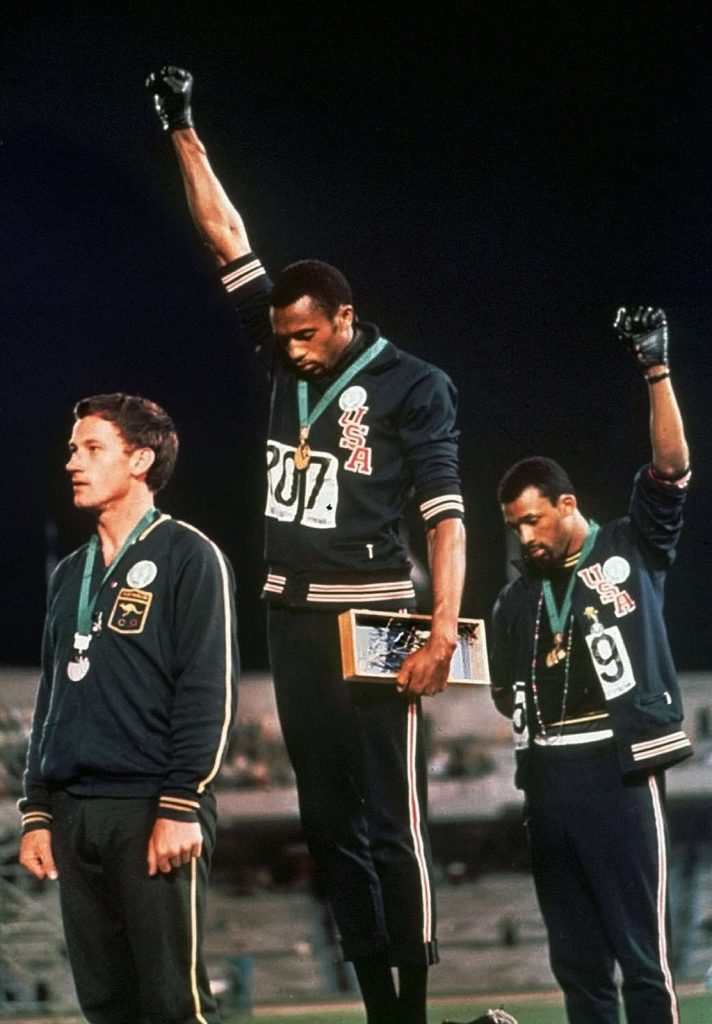
The iconic image of the Black Power salute at the 1968 Olympics reached millions around the world. South Africans fighting Apartheid also understood that it was critical that they were able to tell their story to the world. The ANC, the organisation at the center of the anti-Apartheid struggle, sent Oliver Tambo, one of Mandela’s closest friends and colleagues, abroad to lead this effort. From his base in London, Tambo helped establish ANC outreach missions in 27 countries and traveled the world speaking about the oppression of his people and their rightful demands. This effort to tell the story of the freedom struggle and mobilise international opinion eventually succeeded in attracting the support of a global solidarity movement and in the end governments around the world were forced into isolating the Apartheid regime.
‘Bad People’ aren’t always ‘Bad’
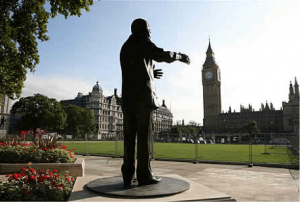 Today in London, a statue of Mandela stands outside Parliament, symbolising his status as a hero respected by all. It is hard now to believe what those inside Parliament were saying about him just a few years before the ANC swept to victory in South Africa’s first multi-racial elections and Mandela became the first black President of South Africa
Today in London, a statue of Mandela stands outside Parliament, symbolising his status as a hero respected by all. It is hard now to believe what those inside Parliament were saying about him just a few years before the ANC swept to victory in South Africa’s first multi-racial elections and Mandela became the first black President of South Africa
“The ANC is a typical terrorist organisation … Anyone who thinks it is going to run the government in South Africa is living in cloud-cuckoo land”
Margaret Thatcher, 1987
“How much longer will the Prime Minister allow herself to be kicked in the face by this black terrorist?”
Terry Dicks MP, mid-1980s, (Speaking of Mandela)
“Nelson Mandela should be shot”
Teddy Taylor MP, mid-1980s
How does the Black Movement relate to Muslims?
In the 1980s, Nelson Mandela was widely seen as a terrorist in the West. Today it is Muslims who are seen as terrorists. The story that is commonly told about ‘The Muslims’ is the story of an aggressive people who want to impose an oppressive religion on the world. In reality, the story of our Muslim Ummah is the story of a people who for centuries have been colonised, humiliated and terrorised.
As Malcolm X said:
“If you aren’t careful, the newspapers will have you hating the people who are being oppressed and loving the people who are doing the oppressing.”
We are surrounded by a negative narrative of ‘The Muslims’ and at best we hear only small and disconnected fragments of the true story of the Ummah. The Muslim narrative is missing and while others define us it is they who command our political destiny.
What is the missing Muslim narrative?
In brief, it is the story of our Muslim brothers and sisters who are suffering in so many countries around the world today. It is the story of our great history as a people and of our sacred duty to struggle against injustice and free the Ummah to achieve greatness once again – following the footsteps of the Prophet Muhammad (pbuh), ‘a mercy for all creation’ (Qur’an 21:107).
We shouldn’t forget that the suffering of black people in South Africa and in America, had been going on for many years when the modern freedom movements began to emerge. It was only when a narrative that awakened political consciousness started to take root and spread amongst the people that concerted efforts to fight for freedom began. The black civil rights movement and the anti-Apartheid struggle are compelling examples of the power of narrative to galvanise millions of ordinary people in a political struggle for their rights and the rights of others.
We should never forget that these movements for freedom and equality are part of the history of our Ummah – the black civil rights movement was a struggle fought by descendants of enslaved African Muslims, many of whom returned to Islam alongside Malcolm X. Although this is seldom mentioned, many South African Muslims played an inspiring part in the victory against Apartheid. These stories are a part of our history that we should all remember with pride, but they are not a closed chapter from our past – they are an urgent lesson for us in our present plight.
This article is part of MPACUK’s strategic analysis series ‘Ummah Awakening’. Previous articles include:
